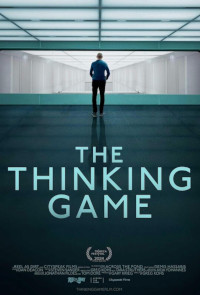| SHADOWS ON THE WALL | REVIEWS | NEWS | FESTIVAL | AWARDS | Q&A | ABOUT | TALKBACK | |||||||||||||
 Shadows off the beaten path Shadows off the beaten pathIndies, foreign, docs and shorts...
On this page:
ERNEST COLE: LOST AND FOUND |
I AM MARTIN PARR |
THE THINKING GAME
| |||||||||||||
| See also: SHADOWS FILM FESTIVAL | Last update 21.Mar.25 | |||||||||||||
|
Ernest Cole: Lost and Found Review by Rich Cline | 
| |||||||||||||
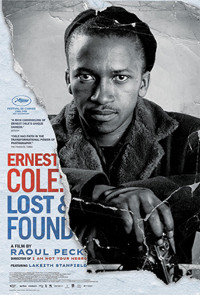 dir Raoul Peck scr Ernest Cole, Raoul Peck prd Raoul Peck, Tamara Rosenberg with Ernest Cole, Leslie Matlaisane, Jurgen Schadeberg narr LaKeith Stanfield release US 22.Nov.24, Fr 25.Dec.24, UK 7.Mar.25 24/France 1h45 CANNES FILM FEST TORONTO FILM FEST  Now streaming... |
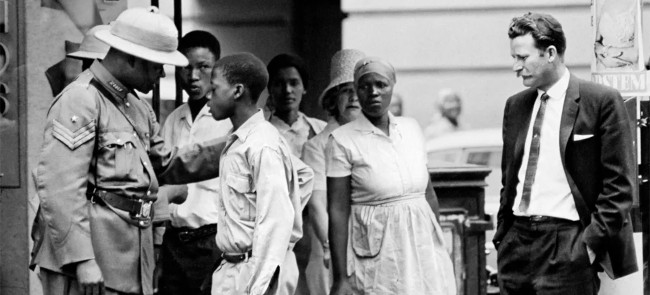 Veteran filmmaker Raoul Peck takes an astute, artful look at South African photographer Ernest Cole, allowing him to tell his own story through pictures, archival interviews and his written words, which are voiced beautifully by LaKeith Stanfield. While Cole himself remains a mystery, the film traces how he documented the world as he saw it. So this becomes a powerful, urgent historical record. And it has urgent resonance. As his nation's first Black freelance photojournalist in the early 1960s, Cole skilfully captured nuances in South African society, including legalised racism and violence. His striking black and white images highlight the astonishing everyday scale of this master-servant system. Published when he was 27, his 1967 book House of Bondage showed the truth of Apartheid to the world for the first time. He lived in North America and Europe until his death from cancer in 1990. Then in 2017, negatives of 60,000 photos that were considered lost were discovered in a Stockholm bank. Cole's writings recount stories from his childhood, accompanied by images that have a raw, earthy power. Narratives include the government flattening his childhood village so whites could develop a neighbourhood there. His personal observations about life under Apartheid are riveting, most notably the knowing comments about the combination of liberties and restrictions within servitude. Photos of a banishment camp are jaw-dropping, as are his images of the Jim Crow-era American South. Strangely, there's very little in this film about Cole's personal life, aside from lingering feelings of isolation and homesickness. "Steal every moment," Cole says about his methods, surreptitiously snapping pics of things officials want to keep hidden. But he never sought to be scandalous; he wanted to preserve reality. His softly eloquent words also speak of the "piercing brutality of staring", which deepened the feeling of otherness for him, in both South Africa and New York. As Cole writes, his photos are questions, not answers. His final decade is a bit of a blur, as he put down his camera and seemed to drift aimlessly, and Peck seems unable to fill in the blanks here. Cole died a week after Nelson Mandela was released from prison.
| ||||||||||||
|
I Am Martin Parr Review by Rich Cline | 
| |||||||||||||
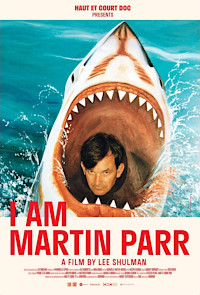 dir-scr Lee Shulman prd Emmanuelle Lepers with Martin Parr, Susie Parr, Greyson Perry, David Walliams, Bruce Gilden, Harry Gruyaert, Mimi Mollica, Kavi Pujara, Mark Bedford, Charlotte King, Clementine de la Ferronniere, Francois Hebel release UK 21.Feb.25 24/France 1h08 Now streaming...
| 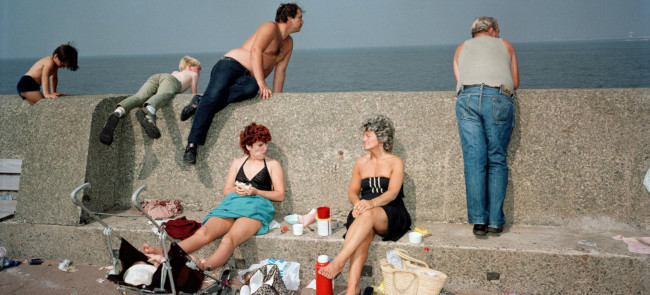 Showcasing his unusual ability to reveal society without cynicism, this film explores the work of British documentary photographer Martin Parr. Filmmaker Lee Shulman takes a relaxed, almost jazzy pace, coaxing Parr to speak openly about his approach, while interviews with family, friends and colleagues add knowing perspective. Best of all, hundreds of these glorious photos are displayed on screen, and they say even more than the audio track does. Capturing "the choreography of life in a single moment", Parr indelibly photographs the British public in their native habitat, most notably exploring how they spend leisure time. An unassuming man, Parr hangs around waiting for things to appear. His distinctive skill is instantly apparent in his pictures, from his observant black and white work to his witty, lurid colour prints. Even though he has run into opposition over the years regarding his unconventional style, he continues to use his distinctive eye. And many of his images are ahead of their time, including his food closeups. The camera follows the mischievous Parr around his hometown in Yorkshire and to the seaside, snapping pics while reminiscing about his experiences. He speaks about learning photography from his grandfather and enjoying the magic of seeing an image develop, knowing without doubt by age 13 that he would be a photographer. He compares his obsessive approach to work to his father's love of birdwatching. Clips from a 1998 documentary offer a nice bit of time travel along the way. And his photographs taken around the world capture scenes from strikingly new angles. Indeed, Parr's inimitable approach reveals the world exactly as it is. Parr says the most difficult thing about photography is capturing the sense of excitement of real life on film. Intriguingly, his photography centres around the working class, chronicling the ways society has shifted from the 1970s to the present. So his older images reveal a powerful political commentary, documenting changes in the world from hyper-globalisation and consumerism to the proliferation of plastic. But he insists, "I show Britain as I find it, neither good nor bad." It's clear that he finds life both strange, funny and rather wonderful. And he reminds us to look at everyday reality without editing it.
| | |||||||||||
|
The Thinking Game Review by Rich Cline | 
Now streaming...
| 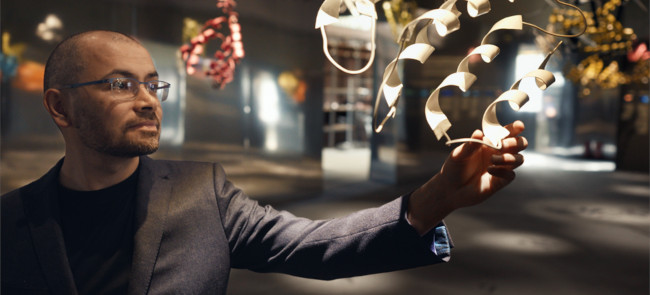 Snappy and very fast-moving, this documentary addresses the issue of artificial intelligence in an unusually accessible way, carefully bringing the audience along to help us understand the complex world of machine learning. Using a terrific range of interviews, archival footage and inventively animated recreations, director Greg Kohs focusses the film on work to advance scientific knowledge with AI, while also acknowledging the limits and the potential dangers. London-based scientist Demis Hassabis has a dream to use AI to solve humanity's problems. He began by studying neuroscience to understand the brain. The key is "artificial general intelligence", a machine that can learn to do new things. So he assembled a top team called DeepMind, launching groundbreaking research in which AI teaches itself how to play games. Purchased by Google in 2014, DeepMind now has more computing power, so the work advances with breathtaking speed while also facing barriers and raising new questions. And they are determined to keep their tools freely available. It's fascinating to watch these scientists get excited when their computer shows signs of creative thinking. Essentially, they are seeing the AI learn new skills like a child does, finding its own way around obstacles. There are other sections in the film that get a bit bogged down in specific tasks or scientific detail that aren't easy to connect with, such as protein folding. But we can understand that they are using AI to solve complex scientific problems that human minds had been unable to crack. And it's clear that new institutions are needed to protect us, just as we have done with industrial and technological advances in the past. The film touches on worries that AGI could potentially seize control and do terrible things in areas like warfare or financial markets. As Demis says, "You can't afford to break things and then try to fix them afterwards." He also admits that there is no benefit to working 50 years ahead of your time, and there are some advances that will need to wait. Full AGI will be able to do any cognitive task a person can do, and the world is currently in a race to get there. The point is that this tool will completely reinvent civilisation.
| 
See also: SHADOWS FILM FESTIVAL © 2025 by Rich Cline, Shadows
on the Wall
HOME | REVIEWS | NEWS | FESTIVAL | AWARDS
| Q&A | ABOUT | TALKBACK | | ||||||||||


